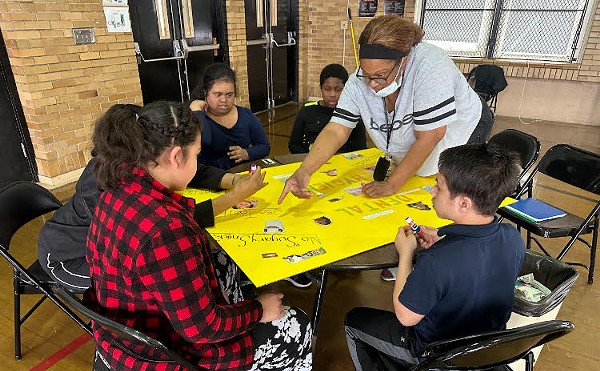Mike Elk, who was recently scrubbed out of existence from politico.com where he created and manned the labor desk, says this story is not about him. The news threads are stretched all over the web, claiming and updating and changing the story. The more progressive-leaning rumblings — unsubstantiated but generally understood — claim Elk was pushed out of Politico for union organizing. Poynter.com has updated its story a few times trying to get ahead of the narrative no one with any real information is spinning. More conservative media sites, like dailycaller.com — also unsubstantiated with clearly understood intentions — have lampooned him with cross-confusing statements from Politico, which claims he no longer works there and the Washington Baltimore Newspaper Guild, which claims Elk was on vacation until Sept. 1. The fact that no one is really talking — neither Elk nor Politico — is not surprising. Like anyone used to writing the narrative rather than being the narrative, he’s waiting until the time is right to tell the entirety of his side of things. What the more-than-casual media observer quickly notices, though, is that Elk is correct.
This story really isn’t about him.
Oct. 8–11, digital media writers from all over the country are invited here to help develop a final draft of The Louisville Statement of Media Workers’ Rights. Mediaworkersunite.com, the digital home for information about the statement, claims that even as digital journalism has expanded and profited, “over 12,000 jobs have disappeared from the media industry.” According to their website, they have put out the call for all digital media workers to unite because workers in the industry are facing new economic realities and because media serves a crucial function in a democracy while journalists have very little access to democracy in their workplaces.
Among the ideas to be addressed are overtime protections, freelancer rights, unhindered union elections, intern rights, gender identity, sexual orientation and age protections, racial and ethnic diversity protections, access to technological retraining and freedom to express themselves on personal social media sites without repercussions.
When LEO sat down and spoke to Elk, he said Louisville is the perfect place for this convention because of the crucial work done by Carl and Ann Braden while they worked for The Louisville Times. He also says that Louisville “is a sort of crossroads.” He points to the city’s long labor history and Kentucky’s current debates over Right-to-Work as the reasons why he is pleased the statement is being finalized here.
For Elk, the drive to unionize digital media workers is as much about salvaging the professionalization of his industry as it is fighting for the rights of workers. “People have figured out how to make money off the Internet,” he said. “And with that, these jobs are no longer fly-by-night jobs.” The problem, Elk said, is the work is structured so that people work all the time or they get burned out and quit. At Politico, for example, Elk claims the turnover rate is about 30 percent. “It’s not too surprising,” he said, “not when you’re working 60 hours a week on the regular.”
While people have learned how to make money off the Internet, Elk said, that money is not trickling down to the people who generate the wealth. “They’ve really adopted the Toyota model,” he said. “You know, lean production with as few people as possible.”
He added that big digital media companies like Politico prefer to have a large, younger workforce that can change with their style. “They like having these 23-, 24-year-olds. They’re smart people and good writers, and so you give them $40,000 a year, and you tell them to work 60 hours a week, they’re gonna do it.”
Blogging has had its own impact, too. For Elk, the drive to unionize means ensuring that trained and qualified writers are able to make a living while providing the news narrative and analysis the job calls for. “You see a lot of these bloggers coming in, and they’re really — just scabs.”
The October meet up for the Louisville Statement on Media Workers’ Rights will take place at the Carl Braden Memorial Center on West Broadway in downtown Louisville.





